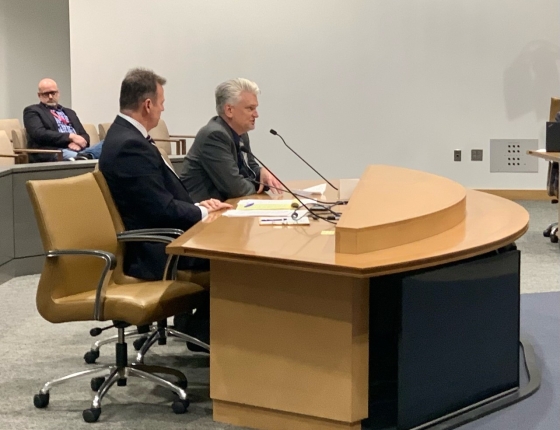On April 11, 2023, the Minnesota Senate passed the amended SF 1622 (previously passed by the Minnesota House as HF 1656), which will provide $115 million from the General Fund to match federal money coming to the state via the federal Infrastructure Investment and Jobs Act of 2021 and the Inflation Reduction Act of 2022. The fund, known as the Competitiveness Fund, is designed to make Minnesota a strong candidate for climate and energy-related grants, many of which involve competing with other states.
The fund breaks down the appropriation as follows.
-
$100 million in grants to eligible entities
-
$750,000 for reports and audits
-
$1.5 million for system development improvements necessary to carry out bill and improve digital access and reporting
-
$6.75 million for technical assistance to applicants and administration by Commerce
The bill was authored in the Senate by Senator Nick Frentz (DFL-Mankato), chair of the Senate Energy Committee, and sponsored in the House by Rep. Patty Acomb (DFL-Minnetonka), chair of the House Energy Committee. Those who testified in favor of the bill emphasized that time is of the essence — other states are already applying and approving matching funds. Funds from the bill are set to become available upon final enactment and will remain available until June 30, 2034.
Minnesota is, frankly, a little bit behind. But this bill puts us back on track to be competitive with other states.
Chris Duffrin, CEE's president
CEE’s President Chris Duffrin testified in February before special legislative committees in the MN House and MN Senate in support of the bill to provide these crucial state matches for competitive federal funding.
Chris Duffrin’s testimony provides an overview of the opportunities and importance of this bill and is provided below.
Minnesota has a remarkable opportunity under IIJA and IRA. Some of these opportunities, such as low-income weatherization, have already been funded and are starting to be deployed in our communities.
Many more competitive opportunities are becoming available. Matching funds will make Minnesota far more competitive for these opportunities. Unfortunately, we are behind. We are behind the other states who have set up internal offices for deployment with matching dollars at the ready. The good news is that this bill can get us back on track.
Earlier this session, I presented to you on some of the specific energy efficiency opportunities under IRA & IIJA. They include opportunities for code advancement, home energy retrofits, public school retrofits and pools of funds to leverage private financing for these investments. Energy efficiency projects like these have the added benefit of reducing customer bills, improving the resiliency of buildings, creating local jobs and saving ratepayers billions by eliminating waste.
The efficiency opportunities don’t even include the many additional competitive opportunities in areas like industrial decarbonization, grid resiliency, and carbon capture, which hold promise to help us learn how we decarbonize some of the most difficult sectors, maintain reliability, all while creating good paying union jobs.
Finally, this bill provides needed grant development support for our cooperatives, municipal utilities, Regional Development Councils and Indian Tribes to better compete for these funds. Our smaller communities need this assistance to successfully compete for funding against communities and cities across the country.
This bill provides a tremendous opportunity for Minnesota to be more competitive, to capture more of the tax dollars Minnesotans pay to the federal government, and to significantly invest in a more efficient, resilient energy infrastructure. I thank the Chair for bringing this bill forward and thank you for your time.
Thanks to the bill’s passage, Minnesota is better positioned to leverage the billions of federal funds becoming available for clean energy, carbon reduction, job training, and energy efficiency. This will set our state on a path to meet our carbon reduction goals in the coming years and support our recently passed 100% by 2040 goal, while investing in our economy and creating a larger and more equitable clean energy workforce. CEE is eager to begin this important implementation work alongside trusted partners.
